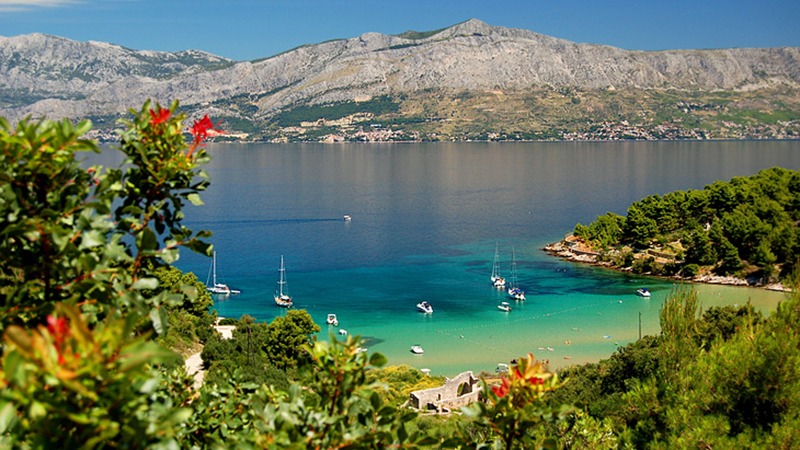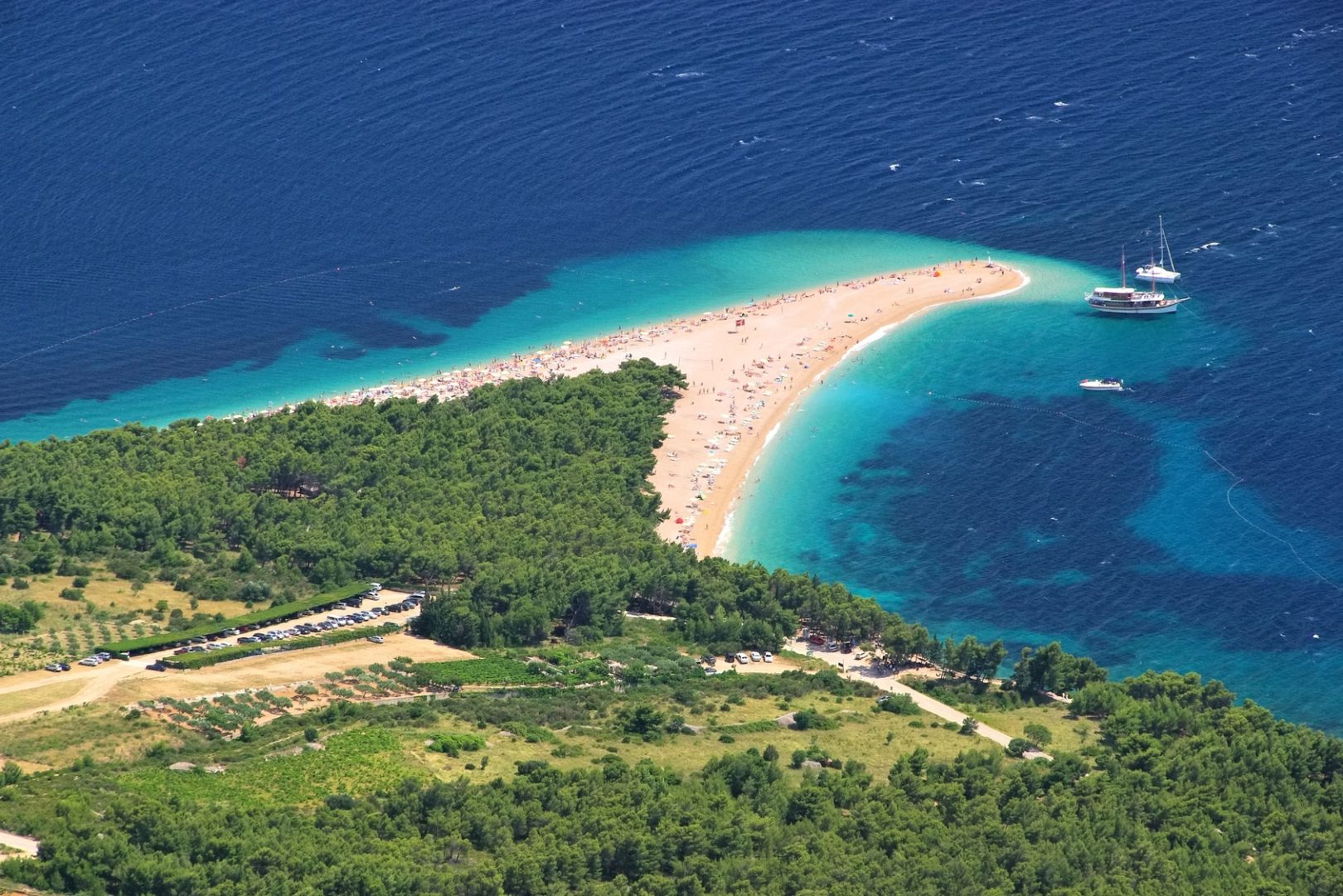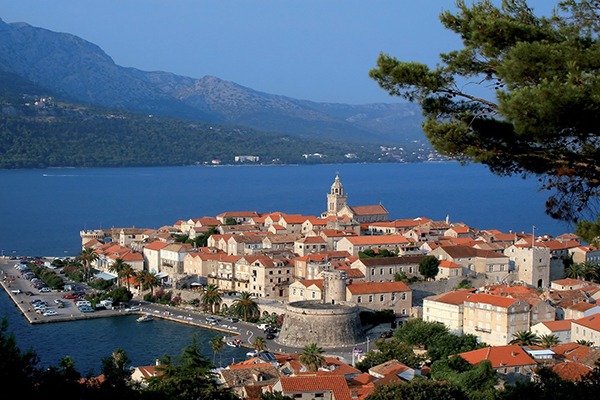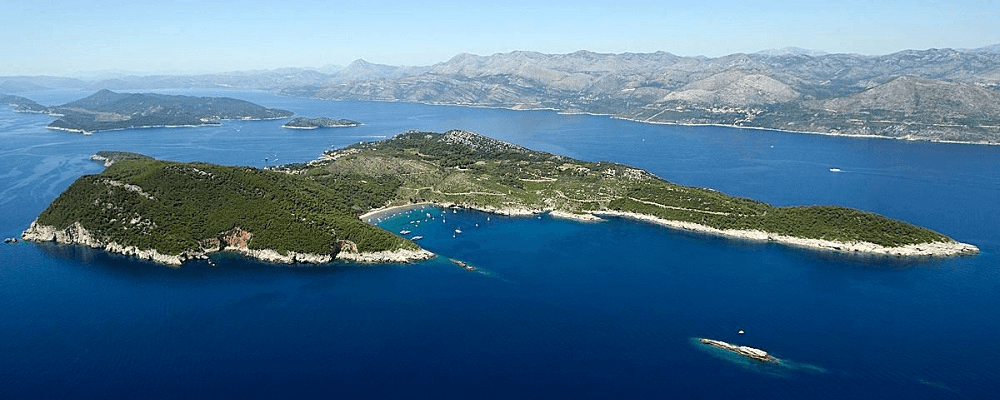Split
Split, a town on Croatia’s Dalmatian Coast, is the second-largest city of Croatia and the largest city of the region of Dalmatia. It lies on the eastern shore of the Adriatic Sea, centered on the Roman Palace of Emperor Diocletian. With enough history to warrant it’s own extended visit, many visitors use Split as a base to explore the surrounding Dalmatian Islands.
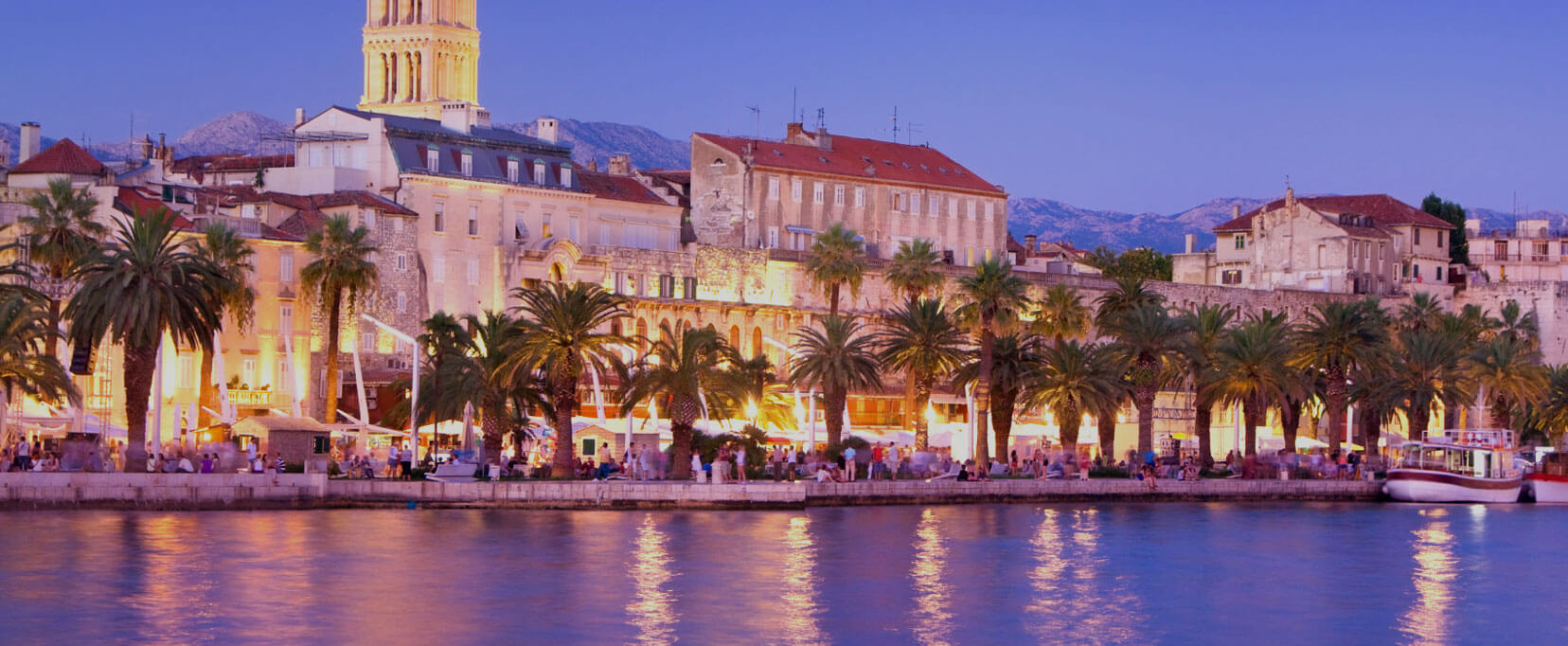
Split
Omiš
Omiš is a small town and harbor in Central Dalmatian located between Split and Makarska, situated in the mouth of the Cetina river and surrounded with massive gorges. In the past, Omiš was notorious because of the pirates of Omiš whose ships were a centuries-long symbol of retaliation, courage and strength. The evidence of proud and turbulent Omiš history can be found on every corner of the Omiš Riviera. Omiš churches and Omiš fortresses are silent stone reminders of the power and the might of infamous Omiš pirates. Today, Omiš is one of the most beautiful places of Croatia’s Adriatic Coast.
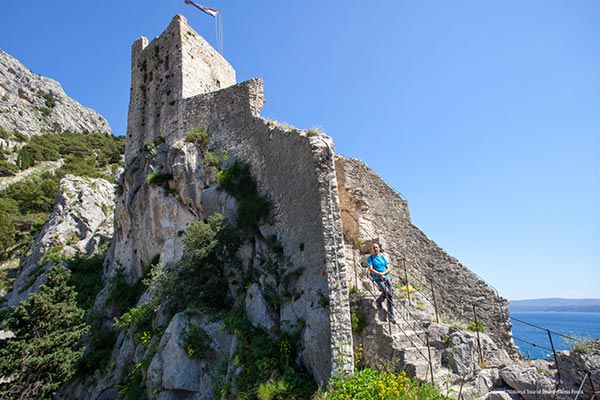
Omiš
Brač
Brač is famous for two things: its radiant white stone, from which Diocletian’s Palace in Split and the White House in Washington, DC (oh, yes!) are made, and Zlatni Rat, the long pebbly beach at Bol that sticks out lasciviously into the Adriatic and adorns 90% of Croatia’s tourism posters. It’s the largest island in central Dalmatia, with two towns, several sleepy villages and a dramatic Mediterranean landscape of steep cliffs, inky waters and pine forests. The interior of the island is full of piles of rocks – the result of the back-breaking labor of women who, over hundreds of years, gathered the rocks in order to prepare the land for the cultivation of vineyards and olive, fig, almond, and sour-cherry orchards.
Hvar
Hvar is a city and port on the island of Hvar, part of Split-Dalmatia County, Croatia. The municipality has a population of 4,251 while the city itself is inhabited by 3,771 people, making it the largest settlement on the island of Hvar.
Bisevo (Blue Cave)
Biševo is famous for its inlets and caves, such as Modra Špilja (the Blue Cave) of the Balun Cove, accessible only by a boat.
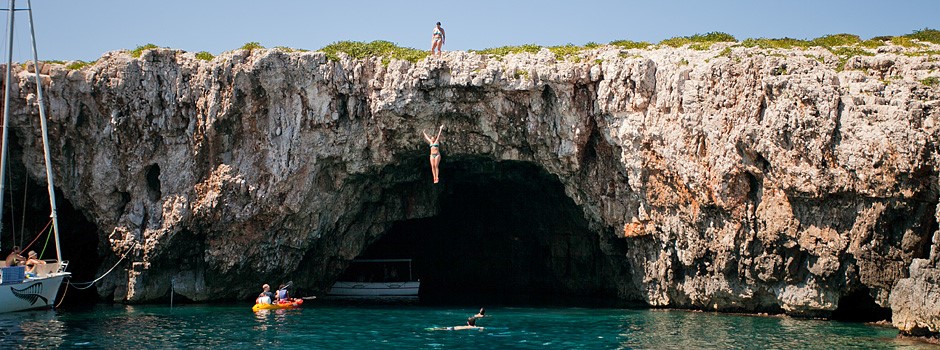
Bisevo
Vis
The island of Vis was once a strategic naval Yugoslav base and closed to the public. Due to this isolation, Vis has a special charm – “the Mediterranean as it once was” – making it really interesting to visit. Situated on the northern side of the island, Vis has developed near the remains of the ancient Issa, first urban center in Croatia.
Korčula
The island of Korčula is best known as the birthplace of Marco Polo. Korčula is an enchanting destination surrounded by walls, and one of the best preserved medieval cities in the Mediterranean. Korčula has an abundant choice of restaurants, and there are numerous bars and clubs for those looking for evening entertainment.
Mljet
Although Mljet isn’t a very large island, it is one of the gems of the Croatian coast. The legend says Greek hero Odysseus spent years on this island when he was captured by the nymph Calypso. That is why if you are looking for a respite from more heavily traveled areas of the country we recommend you give this paradise along the Adriatic islands a look.

Mljet
Slano
Slano is a small town located north of Dubrovnik, known for the many Greek and Roman ruins that surround it. The town is a picturesque destination, with its beaches, historical monuments, ample olive groves in its outskirts, and the beautiful bay that it resides in.
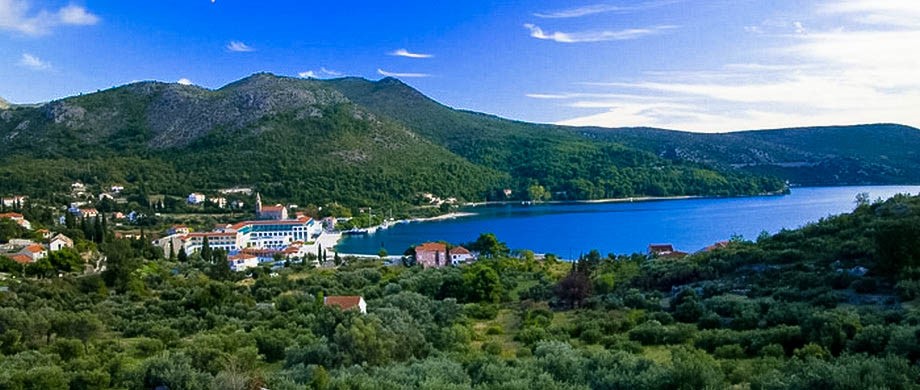
Slano
Elaphiti Islands
Escape the hectic city of Dubrovnik and explore three magnificent islands that together form the Elaphite Islands. Lopud, Sipan, and Kolocep are unique and each contains beauty and history of their own. These islands attract a great number of tourists due to their close proximity to Dubrovnik and aesthetic charm. It is possible to visit them as a half-day or full-day private excursion from Dubrovnik. Enjoy visiting these islands, with a speedboat or yacht as well as having the opportunity to explore hidden bays and sea caves, or go ater tubing, snorkeling or fishing along the way.
Dubrovnik
Walls are built to protect treasures, and, in Dubrovnik, this is particularly accurate, with 1,940 meters of stone surrounding one of the world’s most beautiful cities. As George Bernard Shaw stated: “If you want to see heaven on Earth, come to Dubrovnik”. “The Pearl of the Adriatic” has captivated and seduced kings and artists for centuries with its immaculate medieval architecture.



 English
English French
French

